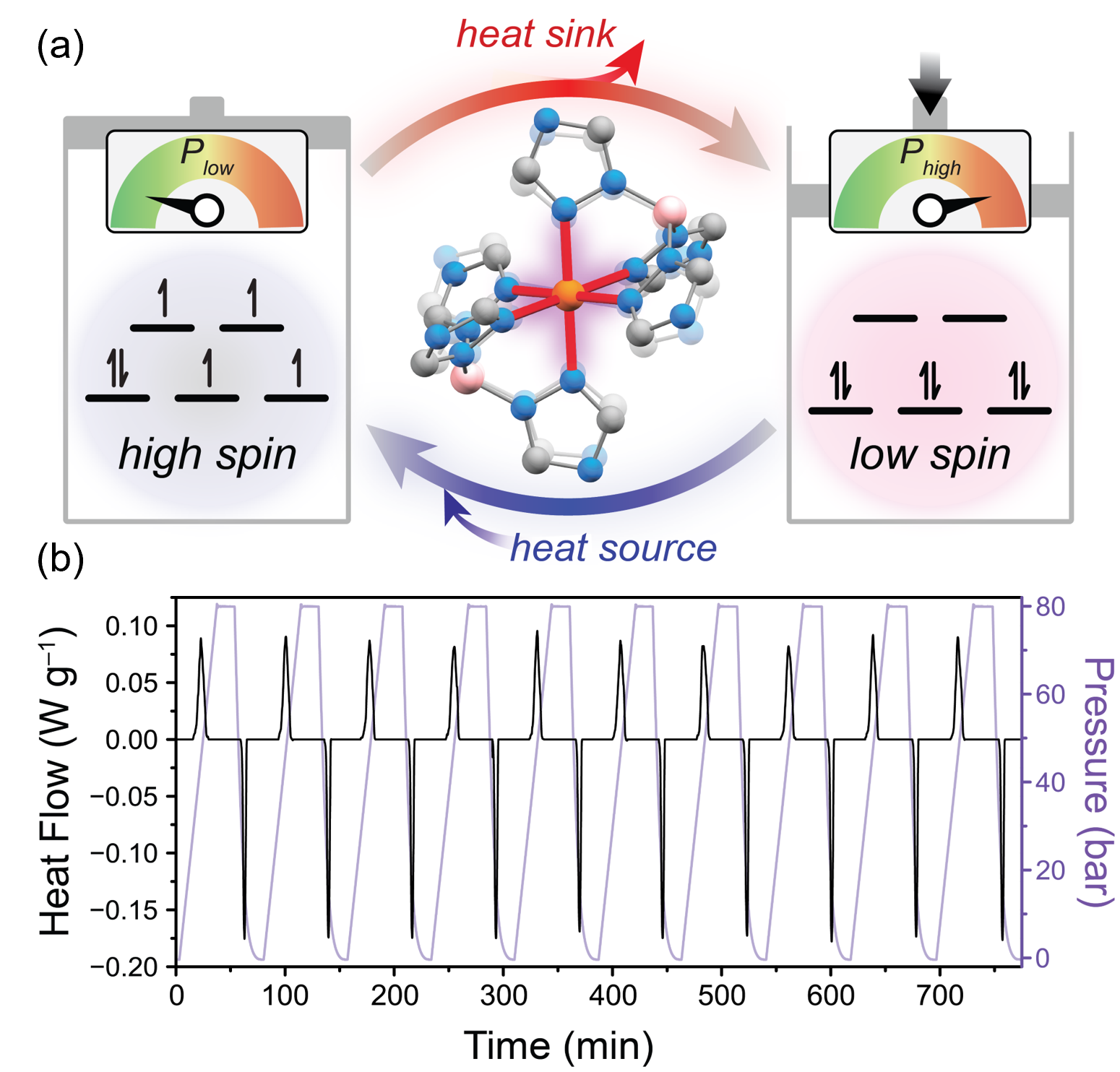Driving Barocaloric Effects in a Molecular Spin-Crossover Complex

With direct emissions of volatile hydrofluorocarbon refrigerants currently responsible for ~2% of greenhouse gas emissions, alternative cooling technologies with reduced emission are urgently needed. A team at the Harvard MRSEC led by Mason has discovered a series of iron-based molecular complexes that can be used as solid-state refrigerants. These complexes undergo reversible spin-crossover phase transitions that drive large thermal changes (barocaloric effects) at very low applied pressures—providing a new mechanism to achieve highly efficient solid-state cooling with zero direct emissions. This work has potential to enable effective and sustainable cooling technologies at scale.
Publication:
Seo, J., J.D. Braun, V.M. Dev, and J.A. Mason, "Driving barocaloric effects in a molecular spin-crossover complex at low pressures," Journal of the American Chemical Society 144 (14), 6493-6503 (2022) ![]()
![]()
Jarad A. Mason (Chemistry and Chemical Biology)
2022-2023 Harvard MRSEC (DMR-2011754)
